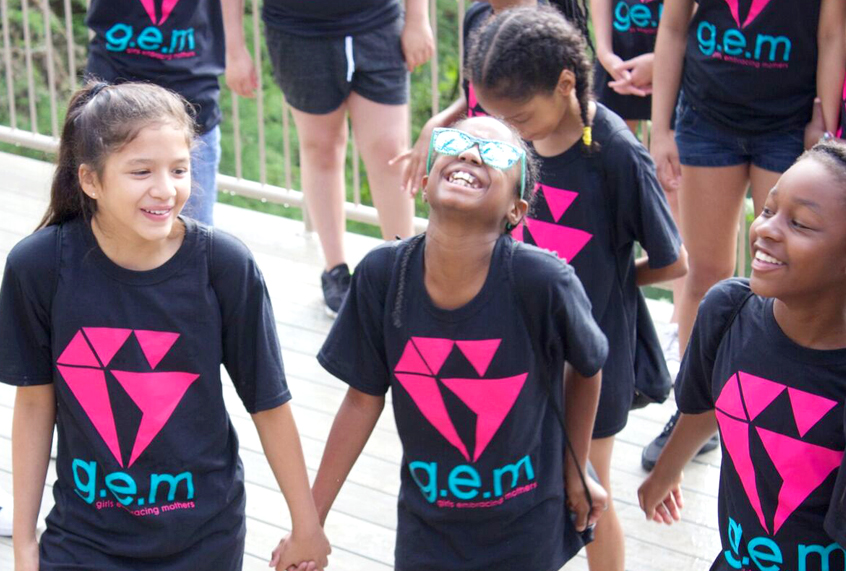In preparation for Mother’s Day, Evelyn Fulbright would get someone to wash her outfit by hand for some “extra care,” she said, maybe even with some bleach. She then would fold the newly clean clothes as precisely as possible, and place them underneath her mattress, so the creases would be sharp. She might even borrow some makeup and find someone to braid her hair. Anything to look “the best for that day,” she recalled.
Fulbright’s daughters, Brittany and Jazmine Barnett, would drive the three and half hours to Lockhart Correctional Facility, a prison about 30 minutes from Austin, Texas, every month. But especially for Mother’s Day, they would make sure to get there well before visiting hours began. The line can get long and the two-hour visiting hours already felt too short.
After the pat-down search and metal detectors, and once her daughters were in the visiting room, Fulbright said that the first part of the visit was always joyful. You can hug for the first two minutes, then there’s no touching after that. Fulbright and her daughters would laugh, and catch up, and munch on a Mother’s Day meal of overpriced junk food from the prison vending machines (outside food is not allowed).
During the final 30 minutes everyone’s emotions would erupt — the fact that Fulbright’s daughters would have to leave; the fact that Fulbright would have to return to a cage; the fact that Brittany and Jazmine Barnett had to press on without their mom. “It was always difficult to have to leave my mom behind the barbed wire,” Barnett said. “Sometimes we would look back, to blow her a kiss or something, but then it just got too hard to look back.”
Women have become the fastest growing segment of the prison population, a number that has ballooned since 1980, reaching to about 220,000 incarcerated women today. It is a growth rate that has outpaced men by more than 50 percent, according to the Sentencing Project. Just 5 percent of the world’s female population lives in the U.S., and yet this country incarcerates one-third of the world’s female prison population. The Vera Institute found that 80 percent of incarcerated women are mothers, the overwhelming majority are mothers of minors, and most were primary caregivers before their detainment.
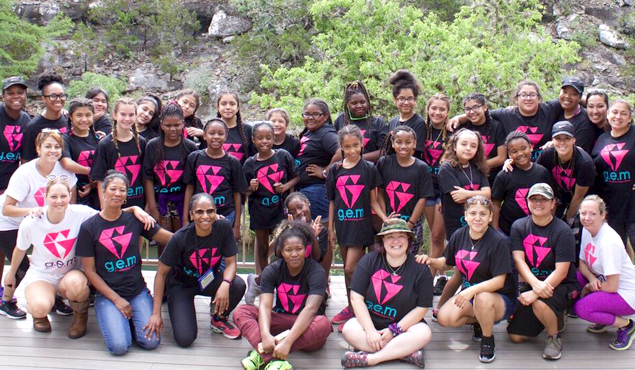
With the rising population of incarcerated mothers, disproportionate among low-income women and women of color, many groups across the country are organizing around their cause and in honor of Mother’s Day.
In Chicago, Reunification Ride provides a monthly bus for children to visit their mothers nearly 200 miles away at Logan and Decatur Correctional Center. The bus cost used to be covered by the state, but in January 2016 the budget was slashed, and the monthly bus — which for some children and their caregivers was the only way to visit their moms in prison — was eliminated.
Since May 2016, organizers from Cabrini Green Legal Aid, Moms United Against Violence and Incarceration, and Nehemiah Trinity Rising were able to raise the funds to bring back the monthly bus service from Chicago to Illinois’ women’s prisons. In celebration of Mother’s Day, Reunification Ride sends two buses this month instead of one. “If people don’t make it to a prison any other day, they’re going to try to make it on Mother’s Day,” Barnett said.
Moms United Against Violence and Incarceration also staged their fifth annual incarcerated Mother’s Day vigil and toiletry drive May 12 outside of Cook County Jail in Chicago. Organizer Monica Cosby, a formerly incarcerated mother of three who spent 20 years behind bars (three of which were pretrial), said that a lot of the work that happens outside of prisons or jails doesn’t reach inside. “So that’s why we do it outside of the jail, so the women will know we’re out there, caring, on their behalf.”
For the second year in a row, the National Bail Out Collective will continue its Black Mamas Bail Out campaign, featuring more than a dozen groups to bail out as many black women as they can in various cities, “to give incarcerated mothers an opportunity to spend Mother’s Day with their families,” the website says. This includes trans women and other black women who may not have given birth, but are caregivers or mothers in their communities, the organizers say, giving credence to the additional trauma LGBT incarcerated women often face.
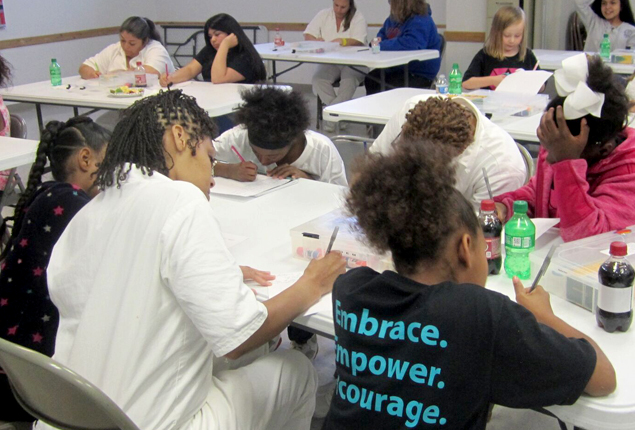
“There was a sense of wanting to do something around a holiday that’s beloved in our country, but that we know everyone isn’t celebrating the same way,” Arissa Hall, co-coordinator of the National Bail Collective, said. “When we think of Mother’s Day, we do have an ideal or prototype of mothers that should be celebrated, and oftentimes they aren’t black women. And definitely, we aren’t as a culture or a society thinking about black mothers that are incarcerated.”
Last year, the campaign, which is now year-round, raised funds to free over 100 black mothers and caregivers who were sitting in jail because they couldn’t afford bail. These women were also provided or connected with additional support and life-sustaining services after their release. Many of the local groups are planning homecoming celebrations this year for the newly freed mothers, their children and their communities.
“I think that black women are triply marginalized in the criminal justice system as a whole, but in the prison system particularly,” said Breea Willingham, PhD, who is an assistant professor of criminal justice at Plattsburgh State University of New York. Her research focuses on women in the criminal justice system and the impact of mass incarceration on black families. “They are often pushed so far into the margins of society that they’re rendered invisible,” she continued, “and so what these efforts are doing, or what they’re saying, is that ‘we see you. We care, and we’re here for you.'”
In Texas — the state that incarcerates more women by number (not per capita) than any other state — Fulbright’s daughter Barnett, 34, started her own organization five years ago called Girls Embracing Mothers. The program supports girls whose mothers are incarcerated and brings them to visit their mothers in prison. Girls Embracing Mothers takes a group of girls between the ages of 5-18 on the first Saturday of each month.
But instead of the typical two-hour bloc, the group gets to stay for four hours in a private room and bring into the prison arts and crafts and food. For Mother’s Day, Barnett had the women reflect on what it means to be a mom in prison on this holiday, while the girls pretended they were journalists and wrote advice columns to another girl their age who is struggling to cope with an incarcerated mother.
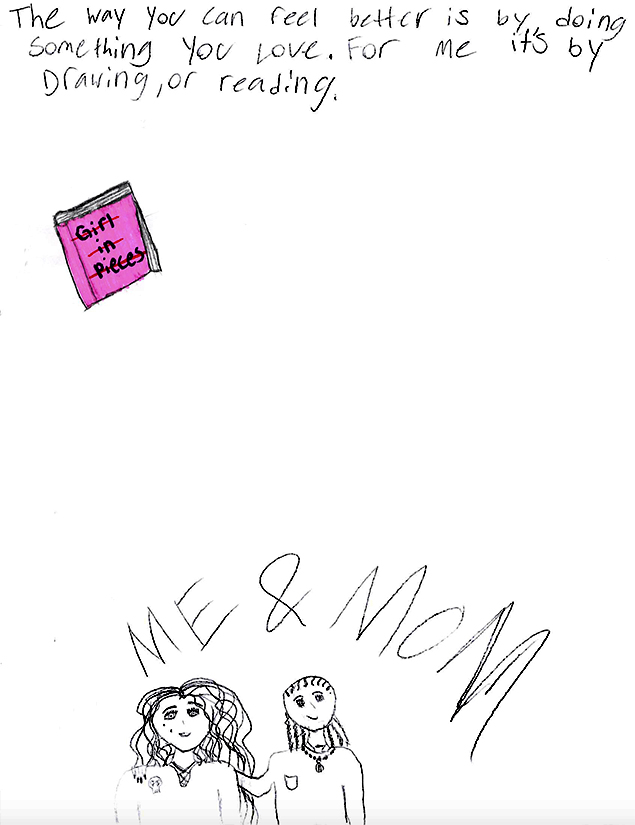
From all these groups — and there are many more committed to organizing around incarcerated mothers and their children on Mother’s Day and beyond — their message is a larger one about policy and reform, questioning why we as a country incarcerate so many mothers in the first place. But there’s also a more sentimental one for the incarcerated mothers and their children — that as we celebrate mothers nationally, those behind bars are not forgotten or overlooked, as well as their children enduring the holiday without them. “These women are still our mamas,” Barnett said.
“People who are locked in cages are often rendered one-dimensional, as far as the statistics or the numbers,” Marbre Stahly-Butts, co-director of Law for Black Lives and co-coordinator of the National Bail Out Collective, said. “Saying these are our moms, and these are our sisters, and these are our children, and that we recognize them and we see them, as opposed to ‘this percentage of people’. . . We want to change the narrative around who it is that we’re literally spending billions of dollars every year in the country to put in a cage.”
Incarcerated women are split almost evenly between jails and prisons. And according to the ACLU, 60 percent of women in jail are awaiting trial. Women’s lower economic status in this country, with women of color earning even less than their white counterparts, makes it that much more difficult for them to afford cash bail. “The intersection between poverty and prison is a strong one,” said Monifa Bandele, Senior Vice President of Maternal Justice Programs at MomsRising. “You lose your job, lose your house, lose custody of your kids, all because you’re waiting to make your case.”
The Vera Institute conducted a study on women in jails and found that “Women often become involved with the justice system as a result of efforts to cope with life challenges such as poverty, unemployment, and significant physical or behavioral health struggles. Most are jailed for low-level, nonviolent offenses.” ACLU verified that drug and property offenses make up more than half of the offenses for which women are incarcerated. However, it is vital not to exclude the women incarcerated for violent offenses when considering reform and efforts to reduce the female prison population.
“They’re doing crimes that may just be a matter of survival, especially for women who are on lower social economic statuses,” Willingham said. “So when we talk about women’s incarceration and mothers in particular, it’s important to understand how they even got there. By the time incarceration hits, they’ve already been trying to survive. So they’ve already — in some cases — exhausted other modes of survival.”
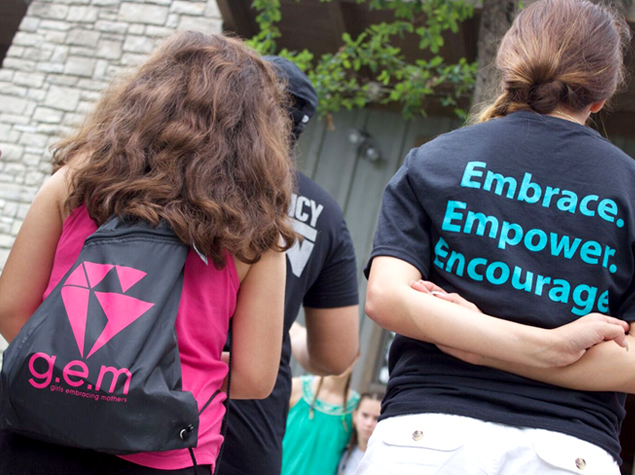
Given the statistic that 80 percent of incarcerated women are mothers and most of them single mothers, their incarceration, no matter how long, can have a traumatic and wide-reaching effect on a child. A report via the Annie E. Casey Foundation says more than 5 million children have had a parent incarcerated at some point in their life, which is more than 7 percent of the child population in the U.S.
But a black child is nine times more likely than a white child to have a parent in prison, even though when it comes to drug offenses — a driving force of the over incarceration of black people and black women specifically — data reveals that drug use is comparable across racial lines or, even higher for whites. Though arrests and convictions do not reflect this. And while the emotional trauma for a child of an incarcerated parent is substantial, including increased risks of suffering from PTSD, depression, anxiety, having trouble at school, being suspended or expelled, and a 40 percent higher chance of being incarcerated themselves, an incarcerated parent is devastating to a family’s economic status.
“Incarceration of a family member is associated with 64 percent decline in household assets, so it just magnifies the poverty and race gap,” Jessica Jackson Sloan said, national director and co-founder of the criminal justice reform organization #Cut50. “Many of these families are already behind, and now they’re being set even further behind by the parent’s incarceration.”
These problems don’t necessarily dissipate when a mother is released either. Fulbright was sentenced to eight years for a drug addiction, two and half of which she served in prison. She worked as a nurse making about $27 an hour prior to her conviction. When Fulbright was first released, the only place where she was able to gain employment was at a Walmart earning minimum wage.
Eighteen years after Fullbright’s conviction and 10 years home, she still has to check the convicted felon box. “The criminal legal system is just an extension of the way that the culture treats women generally and judges women generally,” Cosby said.
Zach Whelan, executive director of Project Avary, a Northern California organization that assists and intervenes in the lives of children with an incarcerated parent, said that having a parent in prison mirrors the loss of a loved one, and there’s “profound trauma and grief that happens to these kids.” Willingham added that there is often an additional stigma placed on incarcerated mothers, the “What-type-of-mother-takes-herself-out-of-her-child’s-life?”
But that shame and stigma reaches a child, often no matter which parent is sent to prison. “They become ashamed of who their parent is and what their family has gone through. And they’re told to keep that quiet, so then they have to live this life of a lie,” Whelan said. A teenager in California, whose mother was incarcerated for most of her childhood, said that when she younger, growing up with her grandmother, she would rehearse the explanation that her mom was on a business trip, or out of town, whenever someone inquired about her mom’s whereabouts. But as the years went by and the barrage of questions continued, sometimes two or three times a day at school, “the secret” was harder to keep and her classmates labeled her a liar. “Overcoming that shame and stigma is really key to their healing,” Whelan said.
Holidays often exacerbate the grief and stigma of separating a mother from her child. Sloan, whose own family experienced incarceration, says it can be another reminder that you are not normal. And it can be made worse when a child doesn’t have the ability to visit.
Women, especially in the federal system, can be moved hundreds of miles away from their families and rarely is proximity to one’s family taken into account. Cosby, whose kids were one, four and seven when she was arrested, never saw her children once she was transferred to prison. The cost was prohibitive.
“Visiting someone in prison is expensive,” Willingham said. “It’s the cost of the transportation, it’s when you get there, do you have the money to feed the vending machines with the products that are overpriced, and it’s getting back home. So if the guardian doesn’t have the financial means to accommodate that, then she won’t get to see her child.”
Programs like Reunification Ride and Girls Embracing Mothers help to subsidize this hurdle, and there are many more, while the National Bail Out Collective brings mothers home — stepping in to keep families connected in a way the state or system never has. “For groups, for communities to come together and say, ‘we see you, we’re here for you,’ that is extremely powerful,” Willingham said. “Because it says something that the criminal justice system has never said to these women.”
And it is the women who are formerly incarcerated and those most affected by incarceration who are leading this work, Bandele said. “The fact that it’s on the radar for everyone else really has to do with the groundwork they’ve been laying,” she added. “The people who experience the issues are the most intellectually suited to solve them. Solutions come from people who have the most intimate interaction with an issue, and that type of leadership is usually overlooked, but there’s been a shift.”
When the Girls Embracing Mothers’ holiday visit concluded — after the mothers and daughters finished their writing prompt, after the open discussion about what everyone was feeling and enduring, and after several rounds of Uno — Barnett noticed how much longer and connected the embraces were at the visit’s end. “It was just more intimate, the hugs were longer,” she said, “it was heartwarming.”
Before they left the prison, Barnett reminded the girls that Mother’s Day was the following weekend, but they didn’t need the hint. “Happy Mother’s Day!” they said vigorously, over and over again.
